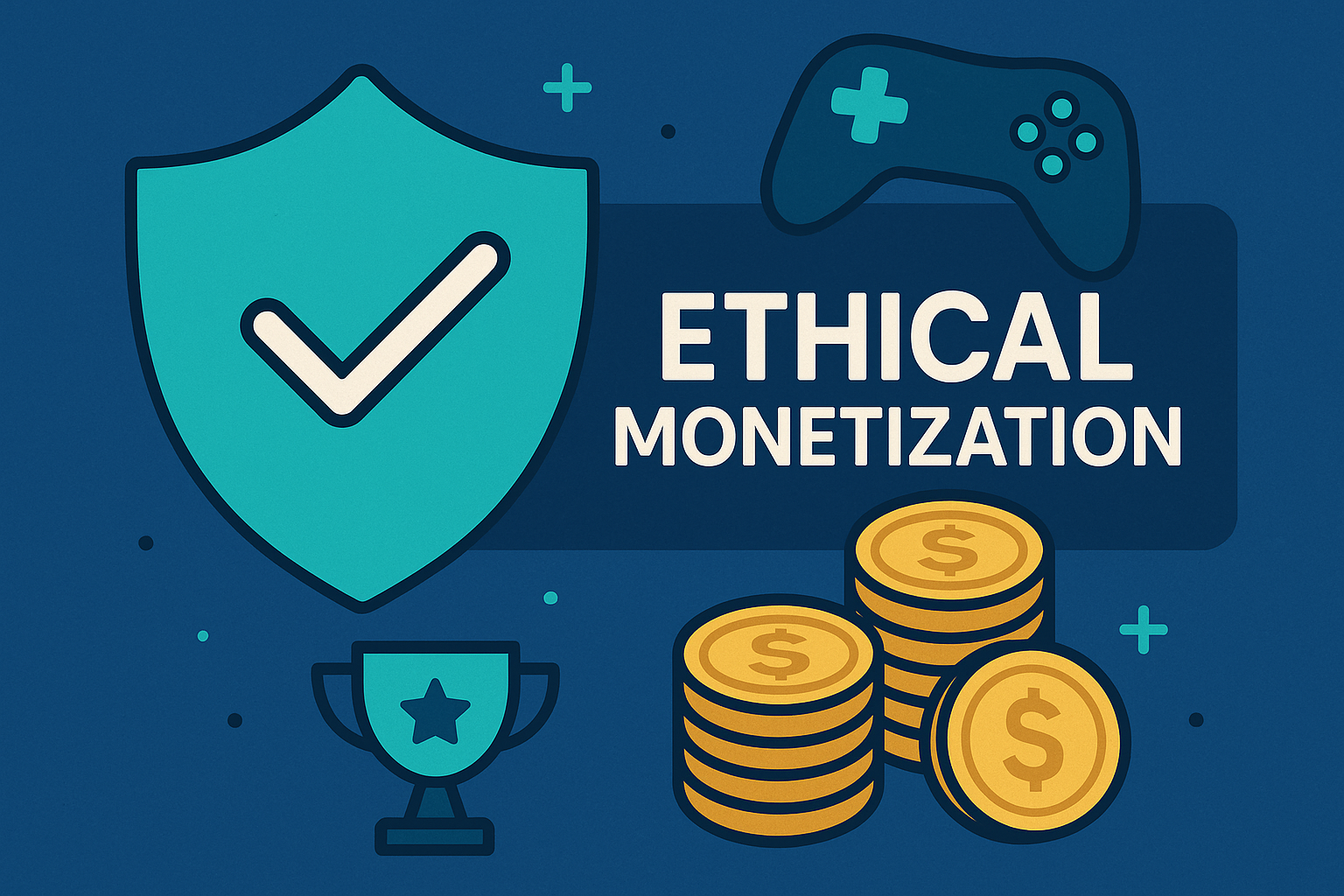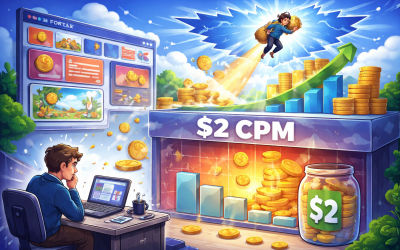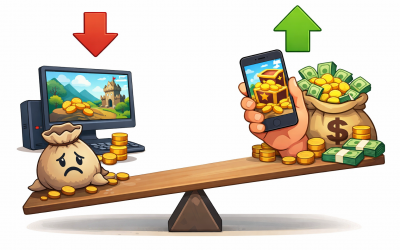Player-Centric and Ethical Monetization: The Future of Game Revenue
Amidst the drive for revenue, the industry is also recognizing the importance of player-centric, ethical monetization. As hybrid models became complex, some games in the late 2010s faced backlash for aggressive tactics (e.g. excessive pay-to-win mechanics or manipulative loot box designs). Going forward, there is a strong trend towards transparency, fairness, and community trust in monetization practices
As a result, the most successful games increasingly embrace player-centric and ethical monetization strategies—ones that foster trust, enhance engagement, and drive sustainable ad and in-app revenue over time.
Contents
- 1 The Shift Away From Exploitative Models
- 2 What Is Player-Centric Monetization?
- 3 1. Monetization Should Be Optional and Non-Intrusive
- 4 2. Transparency Builds Trust
- 5 3. Community Feedback Drives Adjustments
- 6 4. Value is King: Every Transaction Must Feel Worth It
- 7 5. Free Players Are Still Valuable
- 8 6. Regulatory and Platform Trends Favor Ethical Models
- 9 The Long-Term Value of Ethical Monetization
The Shift Away From Exploitative Models
During the late 2010s, many free-to-play games leaned heavily on aggressive monetization tactics. Pay-to-win mechanics and manipulative loot box systems became common, especially in mobile games. These systems maximized short-term profits but often at the cost of player goodwill. Backlash was inevitable.
Gamers voiced frustrations in forums, social media, and reviews. Regulatory bodies stepped in. The backlash wasn’t just about money—it was about trust. Players felt misled, manipulated, and pressured. And for developers, this meant churn, reputation damage, and declining lifetime value (LTV). Today, the industry is changing. Ethical monetization isn’t just a buzzword—it’s a survival strategy.
What Is Player-Centric Monetization?
Player-centric monetization puts the player experience at the center of the revenue model. It’s about offering optional value, not coercing spending. In this model, game developers and publishers recognize that sustained revenue depends on player loyalty, not aggressive upsells.
This approach is especially important for:
-
Mobile game monetization
-
HTML5 and WebGL games
-
Unity game monetization
-
Free-to-play console and PC games
Let’s look at the core principles driving this shift.
1. Monetization Should Be Optional and Non-Intrusive
One of the biggest improvements in ethical monetization is the separation between core gameplay and monetized features. Players should never feel like they need to spend money to win or progress meaningfully.
Examples of Ethical Monetization Options:
-
Cosmetic skins or character customizations
-
Premium convenience items (like fast-travel or XP boosters)
-
Battle passes with optional bonus content
-
Rewarded video ads for in-game bonuses (extra lives, coins, etc.)
These models support game monetization while preserving the integrity of gameplay. Players who never spend can still enjoy the full experience—meaning monetization becomes a supplement, not a requirement.
This strategy is crucial for rewarded video ads for HTML5 games and mobile game ads, where engagement is everything.
2. Transparency Builds Trust
Hidden fees, surprise mechanics, and vague pricing models have long been a problem. Today’s best-performing games practice radical transparency in all monetization practices.
Transparency Tactics:
-
Disclosing odds in loot boxes or gacha systems
-
Clear, upfront pricing in app stores
-
Honest promotion of in-game purchases
-
Detailed breakdowns of subscription perks
This trend is supported by regulatory requirements in many regions. For example, Apple and Google now require odds disclosure for loot boxes. Some countries are pushing even further with consumer protection laws in digital sales. For developers using a rewarded video ad SDK, it’s essential to disclose how the ad experience works and what users get in return. Transparency reduces user frustration and increases conversion.
3. Community Feedback Drives Adjustments
Games are no longer built for players—they’re built with them. Ethical monetization strategies include community engagement as a core part of design and iteration.
Community-Driven Monetization Adjustments:
-
Reducing grind when players complain about progression walls
-
Rebalancing event rewards based on player feedback
-
Adjusting battle pass content if value perception is low
-
Creating monetization tools that let players set limits or preferences
This approach isn’t just good PR. It has real business value. A community that feels heard will stick around longer, contribute content, and even advocate for your game—resulting in higher ARPDAU, retention, and ultimately monetize ads more effectively.
4. Value is King: Every Transaction Must Feel Worth It
Whether it’s a $0.99 microtransaction or a premium subscription, players want value. Games that thrive are those that ensure each purchase or ad interaction feels rewarding.
High-Value Monetization Examples:
-
“Welcome bundles” that offer deep discounts on early purchases
-
Monthly subscriptions with consistent value delivery
-
Rewarded video ads offering generous boosts for short view times
-
Daily login bonuses that culminate in monetized content
Battle passes are a great example here. They offer a mix of free and premium rewards, often with an excellent content-to-cost ratio. This model drives conversion without pressure—players want to buy in because it feels like a great deal. The same principle applies to rewarded ads for websites. If users get meaningful rewards—like game currency or unlockable content—for watching a video, it builds goodwill and repeat behavior.
5. Free Players Are Still Valuable
A core misunderstanding in past monetization models was viewing non-paying users as freeloaders. In reality, free players are essential to a healthy ecosystem.
Why Free Players Matter:
-
They increase matchmaking quality and multiplayer engagement
-
They generate ad impressions, especially via rewarded video ads
-
They create buzz and help attract new users
-
Some eventually convert to payers, especially if the experience is positive
Developers using a website monetization platform or mobile advertising platform must remember: impressions matter. A satisfied free user will keep playing—and watching ads—which directly increases eCPM and total ads revenue in apps. Free players are the backbone of the free-to-play monetization model. Ethical monetization ensures their experience is enjoyable—even without spending.
6. Regulatory and Platform Trends Favor Ethical Models
Apple, Google, and various global regulators are clamping down on exploitative tactics. This includes:
-
Odds disclosure for randomized items
-
Restrictions on aggressive push notifications
-
Bans on deceptive UI patterns (like disguised exit buttons)
-
Enforcement of refund and parental control features
As these standards become industry-wide, developers that prioritize ethical game monetization will enjoy fewer compliance issues, better app store visibility, and stronger content monetization opportunities. Platforms that integrate rewarded ads SDKs and offer clear value exchanges align well with these regulations.
The Long-Term Value of Ethical Monetization
The short-term revenue from exploitative tactics is often appealing. But in today’s market, it’s rarely sustainable. User acquisition costs are high. Players are informed and vocal. And churn is expensive.
Ethical monetization doesn’t mean lower revenue—it means longer revenue lifespans.
Sustainable Monetization Metrics:
-
Higher LTV from loyal users
-
Reduced churn and uninstall rates
-
Increased organic growth through community goodwill
-
Better ad performance due to longer session times and more engagement
-
Higher rewarded video ads revenue over time
By building systems that respect users, developers future-proof their games against both market shifts and regulatory crackdowns.
Ethical Monetization Is the New Normal, AppLixir
Game monetization has evolved from dark patterns to deliberate, respectful design. The most successful monetization platforms and games today recognize that players aren’t wallets—they’re community members. Whether you’re looking to monetize Unity games, launch rewarded video ads for websites, or build a robust ad monetization strategy, the path forward is clear:
AppLixir is a leading video monetization platform that helps developers implement rewarded video ads across HTML5, Unity, and mobile web games. Focused on delivering non-intrusive and user-respectful monetization, AppLixir allows players to engage with ads on their own terms—earning in-game rewards in exchange for brief video views. This approach not only increases rewarded video ads revenue but also aligns with the principles of ethical monetization by offering value without compromising gameplay. With easy integration and a high eCPM, AppLixir enables developers to monetize games effectively while preserving the player experience.
Put the player first. Revenue will follow.



